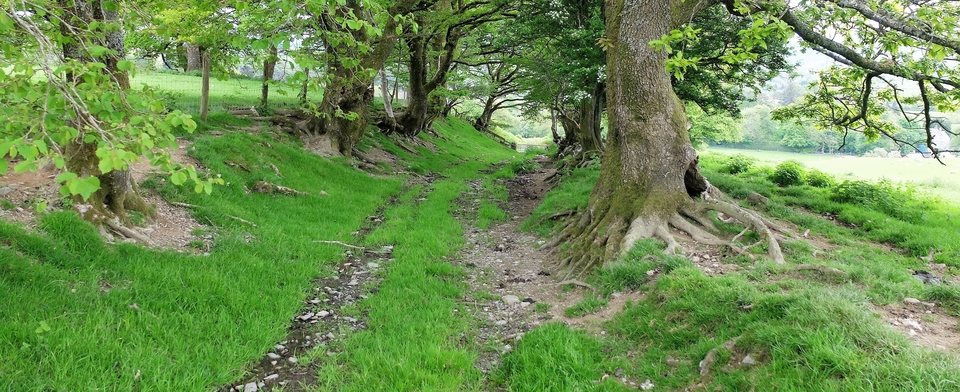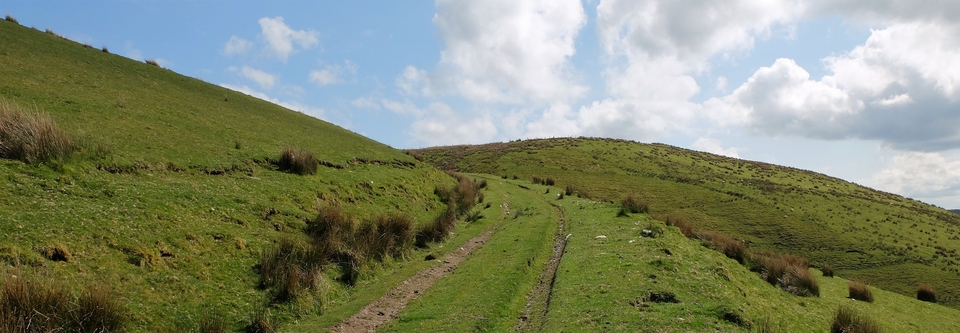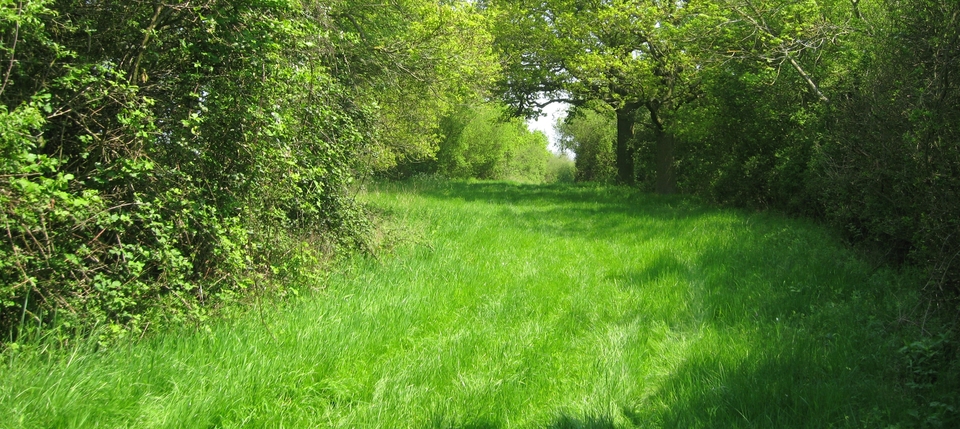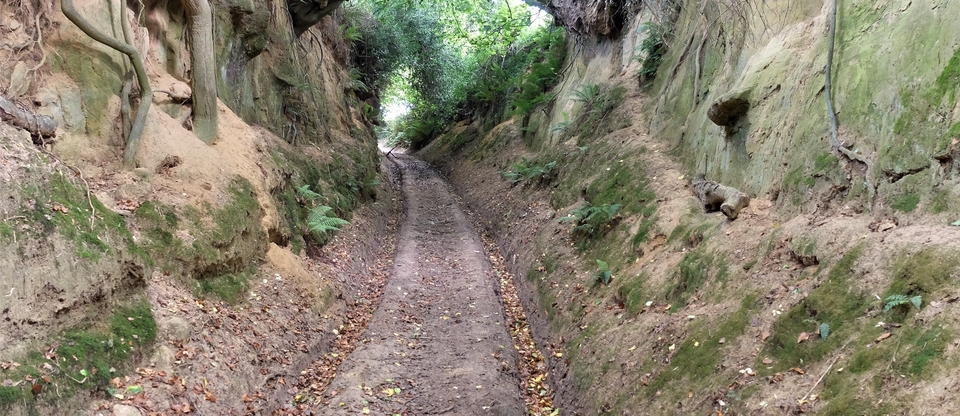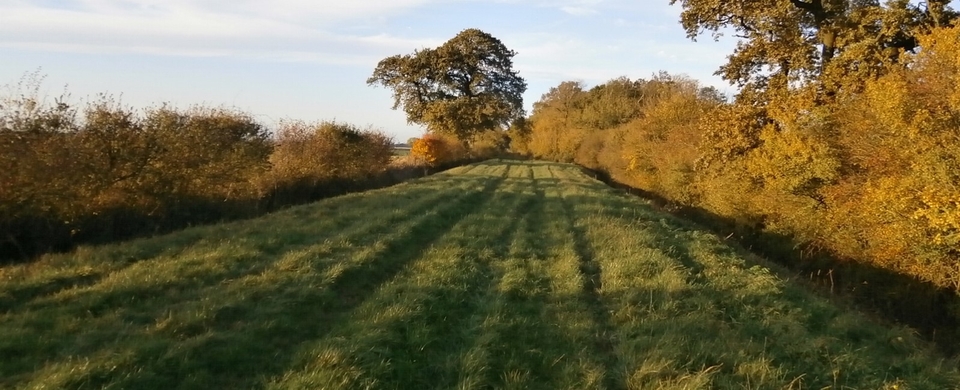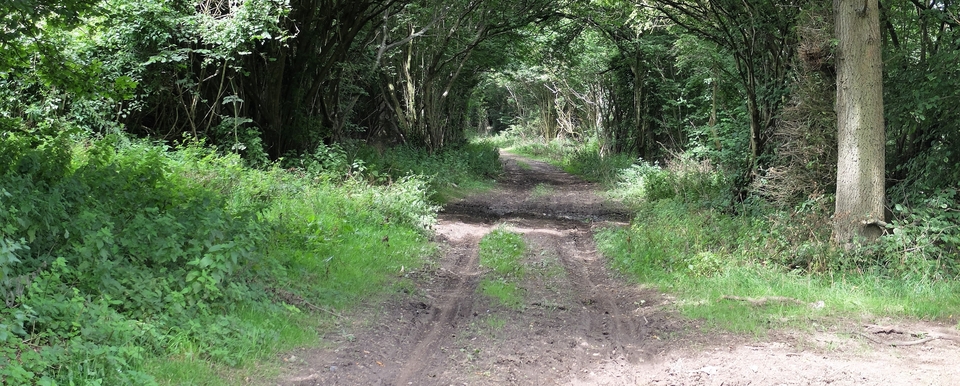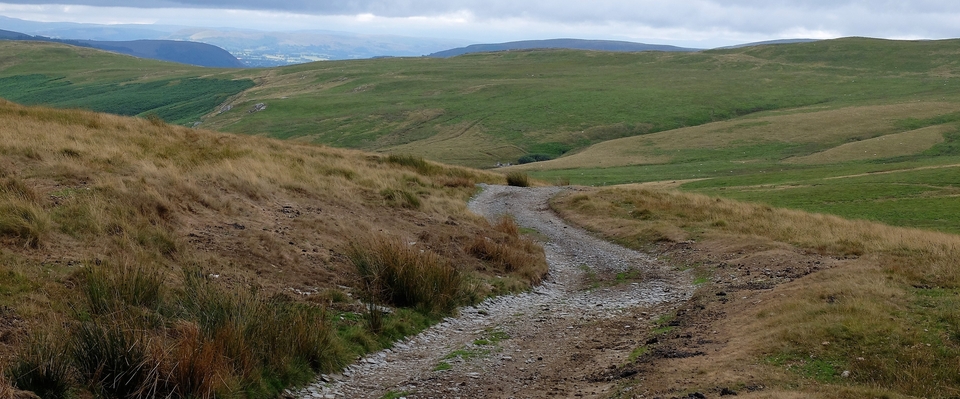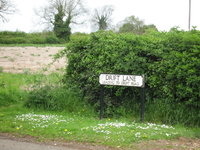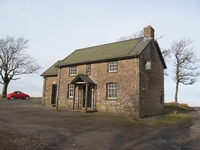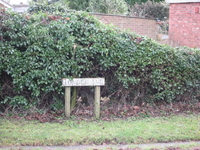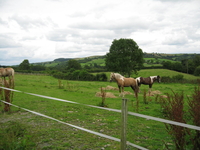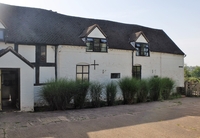Place-names
The main giveaways are:
- Welsh, as in Welsh Lane or Welsh Way
- Drove or Drovers, as in The Drovers Arms. (But watch out for the numerous 'droves' in Somerset and East Anglia, which are drainage ditches into The Wash.)
- Similarly The Black Ox, after the beast and/or the famous bank.
- Drift, an old word for ‘drove' – the Banbury Lane is also called The Driftway.
- Any name with the prefix ‘Ox-', e.g. Oxford, Oxbridge, Oxpen.
- Halfpenny Green, Field, Patch, Meadow etc. One halfpenny a beast was the usual charge for accommodation overnight
- Bullock Lane, Bullock Way. Most of the trade was in bullocks
- More unlikely names with connections to beasts, e.g. ship (often a corruption of 'sheep') and cat (from 'cattle'). Strangest is rother-, which meant a horned beast, usually cattle. (Unfortunately there are some rother-s with different derivations, so not completely reliable.)
- Stocks or Stockings, the names of farms where stock could be fed and watered.
- London or Smithfield, the ultimate destinations – there's a ‘Smithfield Road' in Builth Wells, 200 miles from London.
- Little London: there are nearly 100 around the country, and even more are being found, mostly on the edge of villages. It is probably the commonest place-name of all. Could these (fields, or dwellings with fields attached) have been named by their owners to tempt Welshman to put their cattle/sheep there overnight? No, it must have been the Welsh who called the LLs "llundainfach", little steps to London as it were. (See the article "Little London, Alveley" under the Salop tab, which convinced me.) My friend John Trimmer used to keep a Llundainfach website, giving details of all the LLs he had found, and has given me permission to duplicate his findings on this website. It now has a separate tab of its own at the top.
- Coldharbour, an unmanned shelter where drovers could hide from wild weather
- Runt, an epithet for the Welsh Blacks, which were half the size of some English breeds.
- Lane or Way, the most common indicators of all.
